
The first OPERA Workshop – March 28 2019
Workshop Tracks Speakers Dimensions API Workshop Practical Information Workshop 28/3-2019 Gallery
Workshop
The first OPERA workshop will focus on the latest international developments in Open Research Analytics: Open analytics data, open metrics and open systems as well as how to measure openness, how to include Open Science in the analysis. Three keynotes will put the overall workshop issues in perspective – while four in-depth tracks will discuss the OPERA results and plans coupled with interventions by international experts of the particular areas.
Date: March 28 2019
PROGRAM
09.00-09.30 Registration and Coffee
09.30-09.45 Welcome – Katrine Krogh Andersen, Senior Vice President and Dean of Research, DTU, and Mogens Sandfær, OPERA Project Director
Moderator: David Budtz Pedersen, Aalborg University (AAU)
09.45-10.30 Keynote Merle Jacob, Lund University (LU):
“Engaging with open knowledge practices: Present and Future Considerations for the Research Community“
10.30-11.15 Keynote Katja Mayer, University of Vienna
“Monitoring = Power. Opening Monitoring for Empowerment“
11.15-11.30 Coffee
11.30-13.00 Parallel Workshop tracks
Analytics data & systems (WP1)
Ludo Waltman, CWTS: “Analytics data – new options, quality and coverage“
Christian Hauschke, TIB: “ROSI – Reference Implementation for Open Scientometric Indicators“
Muhammad Javed: “Mission Statement and Re(use) of Scholars@Cornell VIVO developments“
Christina Steensboe, DTU & Mogens Sandfær, DTU: “OPERA WP1 Current progress and plans“
Documenting and analyzing humanities and social sciences scholarship (WP2)
Katja Mayer, Vienna: “Open Social Science – New Generation Metrics and Data”
David Budtz Pedersen & Louise Sandra Nørgaard Amstrup, AAU: “Behavioural insights in adaptation of SSH impact metrics – lessons from AAU VIVO”
Rolf Hvidtfeldt, AAU: “Tracking micro impacts of research in Social Sciences and Humanities“
13.00-13.45: Lunch and network
13.45-15.15: Parallel Workshop tracks
Network analysis and visualization (WP3)
Ludo Waltman, CWTS: “New VOSviewer for the web”
Pedro Parraguez Ruiz, Dataverz: “Capability mapping: using bibliometric data to explore the potential of research ecosystems“
Alenka Prinčič, TU Delft: “AIDA two years down the road“
Nikoline Dohm Lauridsen, DTU & Poul Melchiorsen, AAU: “OPERA WP3 Current progress and plans“
Open Science Support (WP5)
Merle Jakob, LU: “The EU expert group recommendations?”
Christian Herzog, Digital Science: “How we plan to incorporate / support OS in the Dimensions analytics platform?“
Ivo Grigorov, DTU: “Input from the FOSTER project on how we could/should measure Open Science efforts of researchers“
Birger Larsen, AAU: “OPERA WP5 Current progress and plans”
15.15-15.35: Coffee
15.35-16.15: Keynote Christian Herzog, Digital Science:
“Open Science – Should commercial Organisations be banned from contributing?“
16.15-16.30 Wrap up
Karen Sofie Hytteballe Ibanez, OPERA Project Manager, and Poul Melchiorsen, WP6 Lead
Workshop Tracks
Analytics Data & Systems track (WP1)
The track will focus on global data sources and open systems development. Project participants and invited guests will look at questions like:
What are the alternatives to the classical analytical databases – and how do they measure up?
What can we learn from projects and initiatives elsewhere?
What is going on in VIVO-land – in USA and Europe?
In terms of open research analytics platforms – what has OPERA achieved so far – and what’s in the pipeline?
Impact Taxonomies and Pathways in the Humanities (WP2)
There are various attempts to circumscribe and catch the meaning of “impact” related to and resulting from scholarly research from the Social Sciences andHumanities. With impact becoming the driving force for assessing the relevanceand uptake of research in society, the Social Sciences and Humanities are in aunique position to contribute to and shape the concept of impact (Koenig, Nowotny & Schuch 2018). This workshop explores how the Humanities and Social Sciences can help expand current methodologies and indicators for impact assessment. The rise of the impact agenda has been strongly connected to and shaped by the availability of data and metrics. While there are many challenges related to applying indicators from the STEM fields to SSH, there is considerable space for re-thinking and influencing the ways in which the impact of SSH is conceptualised and monitored.
Network analysis and visualization (WP3)
The network analysis and visualization workshop track will discuss new tools and concepts in the context of open research analytics. The workshop raises questions such as: What is the motivation for expanding the definition of research analytics to include network and visualization based indicators? What are the benefits of applying network analytics and/or other types of visualizations to traditional research analytics? How are these new tools and concepts considered and used by different stakeholders? How will OPERA test the inclusion of network and visualization based indicators in the VIVO Research Analytics Platform?
Open Science Support (WP5)
The open science support workshop track will discuss how to identify and evaluate ways that Open Science efforts may form part of research analytics, metrics and evaluation. The workshop will deal with issues such as:What are the potentials and barriers for including open science and open data in research analytics, performance measures and evaluation? What can be learnt about useful indicators from scientific fields that already have a tradition for open science and open data?
Profiles
Welcome
Katrine Krogh Andersen
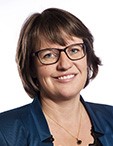
Katrine Krogh Andersen is the Dean of Research and the Senior Vice President at the Technical University of Denmark (DTU). Before joining DTU in 2016 she was director of Research and Development at the Danish Meteorological Institute (DMI). Her career includes research in climate modelling, statistical data analysis, and ice core drilling. From 2006 to 2015 she participated in the Danish delegations to the UNFCCC and IPCC, partly as Danish head of delegation to the IPCC. Katrine Krogh Andersen has a PhD in physics from the University of Copenhagen, Denmark.
Mogens Sandfær
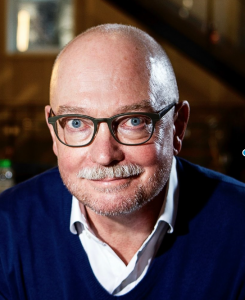 In the early 90ties, Mogens worked at CERN developing databases and systems for the Scientific Information Service. The experience gained from working with the emerging web and the CERN preprint service led to positions as director of the Nordic Networking Center and later as head of Documentary Information Services at the Council of Europe. At the Technical University of Denmark, Mogens has been university librarian before focusing on research analytics, research data management and Open Science. Internationally, Mogens has been involved in several EU R&D projects and has served on many boards and committees. He represents the Danish Rectors’ Conference in the European University Association’s Expert Group on Open Science and participates in a number of projects and forums within that area.
In the early 90ties, Mogens worked at CERN developing databases and systems for the Scientific Information Service. The experience gained from working with the emerging web and the CERN preprint service led to positions as director of the Nordic Networking Center and later as head of Documentary Information Services at the Council of Europe. At the Technical University of Denmark, Mogens has been university librarian before focusing on research analytics, research data management and Open Science. Internationally, Mogens has been involved in several EU R&D projects and has served on many boards and committees. He represents the Danish Rectors’ Conference in the European University Association’s Expert Group on Open Science and participates in a number of projects and forums within that area.
Keynote Speakers
Merle Jacob
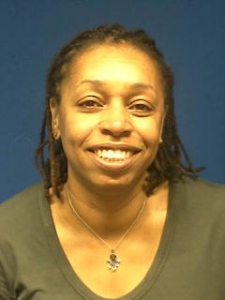
Merle Jacob is Professor in Research Policy at Lund University and the UNESCO Chair in Research Management and Innovation Systems. Merle is currently Director if the Research Policy Institute at Lund University’s School of Economics and Management. Merle has previously been Director for the Centre for Technology, Innovation and Culture and the University of Oslo (09/2006-08/2010) and Professor at the Copenhagen Business School. Professor Jacob’s research specialisation is the relationship between science and policy. Her two specific areas of empirical focus are research and innovation policy and environmental policy. She has published extensively in both areas and is especially interested in the governance of higher education and research and the challenges posed to governance by globalisation and the integration of innovation into the mission of university.
Katja Mayer
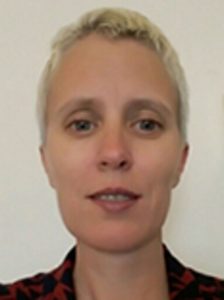 Trained as a sociologist and works at the intersection of science-technology-society. She studies the interactions of social scientific method and its publics. Currently she is investigating open practices in Computational Social Science and Big Data. She works as a senior scientist at the Centre for Social Innovation in Vienna, and is an associated researcher for the Responsible Research and Innovation in Academic Practice platform at the University of Vienna. She has been teaching sociology of knowledge, STS and critical data studies at the Technical University Munich, University of Vienna, Danube University, Krems, University of Art and Design Linz and the University of Luzern, and was a visiting fellow at the Carnegie Mellon University’s School of Computer Science. She is core member of Open Access Network Austria and co-leads the working group on defining a national strategy for the transition to Open Science. From 2011-2013, she was scientific advisor to the president of the European Research Council.
Trained as a sociologist and works at the intersection of science-technology-society. She studies the interactions of social scientific method and its publics. Currently she is investigating open practices in Computational Social Science and Big Data. She works as a senior scientist at the Centre for Social Innovation in Vienna, and is an associated researcher for the Responsible Research and Innovation in Academic Practice platform at the University of Vienna. She has been teaching sociology of knowledge, STS and critical data studies at the Technical University Munich, University of Vienna, Danube University, Krems, University of Art and Design Linz and the University of Luzern, and was a visiting fellow at the Carnegie Mellon University’s School of Computer Science. She is core member of Open Access Network Austria and co-leads the working group on defining a national strategy for the transition to Open Science. From 2011-2013, she was scientific advisor to the president of the European Research Council.
Christian Herzog
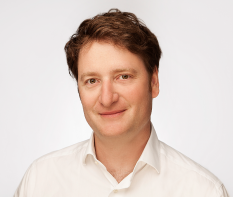 Christian Herzog is the Co-Founder of Dimensions and ÜberResearch, and the CEO of the Digital Science Discovery&Analytics group. He’s a medical doctor by training and has also studied economics. He also co-founded Collexis, a company which was acquired by Elsevier in 2010 and was overseeing then the product management for Elsevier’s entire SciVal portfolio before re-starting with his colleagues and friends ÜberResearch as a Digital Science portfolio company in 2013. Christian lives with his family in Cologne, Germany.
Christian Herzog is the Co-Founder of Dimensions and ÜberResearch, and the CEO of the Digital Science Discovery&Analytics group. He’s a medical doctor by training and has also studied economics. He also co-founded Collexis, a company which was acquired by Elsevier in 2010 and was overseeing then the product management for Elsevier’s entire SciVal portfolio before re-starting with his colleagues and friends ÜberResearch as a Digital Science portfolio company in 2013. Christian lives with his family in Cologne, Germany.
Workshop Tracks
Ludo Waltman
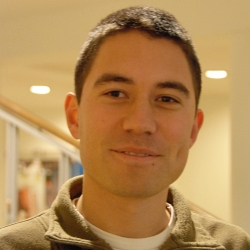 Ludo Waltman is professor of Quantitative Science Studies and deputy director at the Centre for Science and Technology Studies (CWTS) at Leiden University. Ludo leads the Quantitative Science Studies (QSS) research group at CWTS. The QSS group does research in the fields of bibliometrics and scientometrics, with a special emphasis on applications in research management and science policy. Together with his colleague Nees Jan van Eck, Ludo has developed two software tools for the analysis and visualization of bibliometric networks: VOSviewer and CitNetExplorer. Ludo is coordinator of the CWTS Leiden Ranking, a bibliometric ranking of major universities worldwide. In addition, Ludo serves as Editor-in-Chief of Journal of Informetrics.
Ludo Waltman is professor of Quantitative Science Studies and deputy director at the Centre for Science and Technology Studies (CWTS) at Leiden University. Ludo leads the Quantitative Science Studies (QSS) research group at CWTS. The QSS group does research in the fields of bibliometrics and scientometrics, with a special emphasis on applications in research management and science policy. Together with his colleague Nees Jan van Eck, Ludo has developed two software tools for the analysis and visualization of bibliometric networks: VOSviewer and CitNetExplorer. Ludo is coordinator of the CWTS Leiden Ranking, a bibliometric ranking of major universities worldwide. In addition, Ludo serves as Editor-in-Chief of Journal of Informetrics.
Christian Hauschke
 Christian Hauschke is part of the Open Science Lab of the German National Library of Science and Technology (TIB), where he coordinates the TIB’s activities around VIVO. He is involved in various projects and committees on the topic of research information and analysis, for example in the VIVO leadership group, in the DINI working group Research Information Systems or in the Crossref Event Data advisory group. He’s interested in open access, open science, and scientometrics. One of his current projects is a Reference implementation for Open Scientometric Indicators (ROSI).
Christian Hauschke is part of the Open Science Lab of the German National Library of Science and Technology (TIB), where he coordinates the TIB’s activities around VIVO. He is involved in various projects and committees on the topic of research information and analysis, for example in the VIVO leadership group, in the DINI working group Research Information Systems or in the Crossref Event Data advisory group. He’s interested in open access, open science, and scientometrics. One of his current projects is a Reference implementation for Open Scientometric Indicators (ROSI).
Muhammad Javed
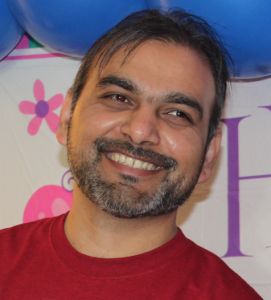 Muhammad Javed, PhD, is the former Project Tech. Lead for Scholars@Cornell at Cornell University Library. Javed was the significant creative force behind the project and has contributed to every aspect of the project – from ontology-driven knowledge modeling and backend data feeds, to the front end design and visualizations. Javed was also a member of Linked Data for Libraries (Phase I) project at Cornell. Recently, Javed has joined Mastercard headquarter in NYC area under the title ‘Ontologist – Data Architecture’. Javed holds PhD in Ontology Change Management from Dublin City University, Ireland. Javed has a broad international education and work experience ranging from Bangladesh, Germany, UK and Ireland.
Muhammad Javed, PhD, is the former Project Tech. Lead for Scholars@Cornell at Cornell University Library. Javed was the significant creative force behind the project and has contributed to every aspect of the project – from ontology-driven knowledge modeling and backend data feeds, to the front end design and visualizations. Javed was also a member of Linked Data for Libraries (Phase I) project at Cornell. Recently, Javed has joined Mastercard headquarter in NYC area under the title ‘Ontologist – Data Architecture’. Javed holds PhD in Ontology Change Management from Dublin City University, Ireland. Javed has a broad international education and work experience ranging from Bangladesh, Germany, UK and Ireland.
Christina Steensboe
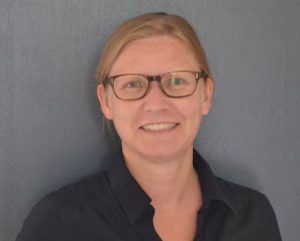 For the past ten years, Christina has worked with research analytics at DTU including quantitative analyses of research performance, collaboration, and benchmarking. She provides research intelligence services and insight to DTU’s leadership and departments. In recent years, Christina has been extensively involved in the development and testing of new research intelligence services and tools. As work package lead, she also plays a central role in the OPERA project. Before joining DTU, Christina worked for ten years at IDC, a global market intelligence company focused on the IT industry. She managed the European research program for business intelligence providing analysis of software industry dynamics in Europe.
For the past ten years, Christina has worked with research analytics at DTU including quantitative analyses of research performance, collaboration, and benchmarking. She provides research intelligence services and insight to DTU’s leadership and departments. In recent years, Christina has been extensively involved in the development and testing of new research intelligence services and tools. As work package lead, she also plays a central role in the OPERA project. Before joining DTU, Christina worked for ten years at IDC, a global market intelligence company focused on the IT industry. She managed the European research program for business intelligence providing analysis of software industry dynamics in Europe.
David Budtz Pedersen
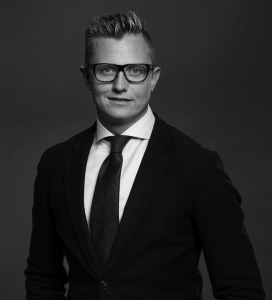 David Budtz Pedersen is Professor of Impact Studies and Science Communication, and Director of the Humanomics Research Centre at Aalborg University, Denmark. His research focuses on impact assessment, R&D policy and evidence-informed policy-making. Dr. Pedersen is Strategic Adviser to the Danish Ministry of Higher Education and Science, as well as European institutions and research foundations. He has about 150 entries on his list of publications ranging from research papers, research monographs, edited volumes, policy reports, op-ed columns and newspaper articles. He has an international public presence with outreach activities in science policy, speaking frequently on the topic of knowledge exchange, Open Science and the use of metrics. He tweets as @HumanomicsMap
David Budtz Pedersen is Professor of Impact Studies and Science Communication, and Director of the Humanomics Research Centre at Aalborg University, Denmark. His research focuses on impact assessment, R&D policy and evidence-informed policy-making. Dr. Pedersen is Strategic Adviser to the Danish Ministry of Higher Education and Science, as well as European institutions and research foundations. He has about 150 entries on his list of publications ranging from research papers, research monographs, edited volumes, policy reports, op-ed columns and newspaper articles. He has an international public presence with outreach activities in science policy, speaking frequently on the topic of knowledge exchange, Open Science and the use of metrics. He tweets as @HumanomicsMap
Rolf Hvidtfeldt
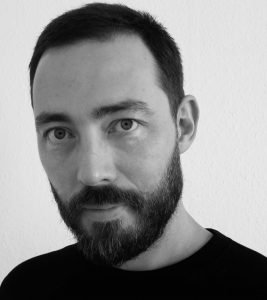 Rolf Hvidtfeldt is a postdoctoral researcher affiliated with the Obel Family Foundation project Responsible Impact (ReAct). He is associated scholar in Humanomics Research Centre. He holds BA and MA degrees in philosophy from the university of Copenhagen and a PhD in philosophy of science from the University of Southern Denmark. Hvidtfeldt’s research interests include philosophy of science with a special focus on interdisciplinarity, the humanities, psychiatry, psychology, and everything related to methodology and the evaluation hereof. In 2015 Dr. Hvidtfeldt was a visiting scholar at the Unit for History and Philosophy of Science at the University of Sydney.
Rolf Hvidtfeldt is a postdoctoral researcher affiliated with the Obel Family Foundation project Responsible Impact (ReAct). He is associated scholar in Humanomics Research Centre. He holds BA and MA degrees in philosophy from the university of Copenhagen and a PhD in philosophy of science from the University of Southern Denmark. Hvidtfeldt’s research interests include philosophy of science with a special focus on interdisciplinarity, the humanities, psychiatry, psychology, and everything related to methodology and the evaluation hereof. In 2015 Dr. Hvidtfeldt was a visiting scholar at the Unit for History and Philosophy of Science at the University of Sydney.
Louise Sandra Nørgaard Amstrup
Louise Sandra Nørgaard Amstrup is research fellow affiliated with the Obel Family Foundation project Responsible Impact (ReAct) at Humanomics Research Centre, Aalborg University Copenhagen. Louises research focuses on organisational psychology, evaluation, performance management and change management. She is responsible for data collection and case studies including qualitative and quantitative approaches to impact assessment.
Pedro Parraguez
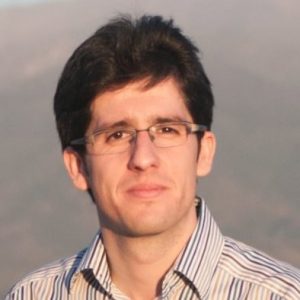 Pedro Parraguez is the co-founder and CEO of Dataverz, a technology-based startup that develops decision-support systems to tackle societal challenges. Pedro’s research and applied work are focused on complex socio-technical systems, with emphasis on network science and data-driven analyses. This includes the study and development of decision-making support for industrial clusters, complex organisations, and large engineering projects.
Pedro Parraguez is the co-founder and CEO of Dataverz, a technology-based startup that develops decision-support systems to tackle societal challenges. Pedro’s research and applied work are focused on complex socio-technical systems, with emphasis on network science and data-driven analyses. This includes the study and development of decision-making support for industrial clusters, complex organisations, and large engineering projects.
Alenka Prinčič
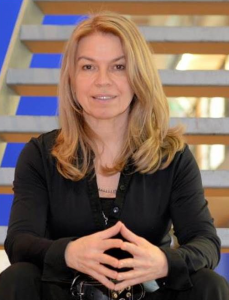 Alenka Prinčič is Head of Research Support at the TU Delft Library. Her main areas of involvement – and interests – span from solid infrastructures, to scholarly communication, academic visibility and impact, and to research intelligence. Currently she is setting up a university open publishing platform and services that will provide TU Delft research staff with new opportunities in their journey to open scholarship and open science. Recently she expanded the scope of Research Support to develop in-depth bibliometric- and research analytics skills. Together with her team she manages institution’s infrastructures for researchers such as Current Research Information System , Repositories, and institution’s own digital one-stop-shop for all research-related support questions.
Alenka Prinčič is Head of Research Support at the TU Delft Library. Her main areas of involvement – and interests – span from solid infrastructures, to scholarly communication, academic visibility and impact, and to research intelligence. Currently she is setting up a university open publishing platform and services that will provide TU Delft research staff with new opportunities in their journey to open scholarship and open science. Recently she expanded the scope of Research Support to develop in-depth bibliometric- and research analytics skills. Together with her team she manages institution’s infrastructures for researchers such as Current Research Information System , Repositories, and institution’s own digital one-stop-shop for all research-related support questions.
Alenka’s background is in microbiology. As a visiting scholar at the Centre for Microbial Ecology (CME) of Michigan State University, and the Netherlands Institute of Ecology (NIOO) she investigated nitrifying bacterial communities and obtained her PhD from the University of Ljubljana, Slovenia. Between her research and Library position she joined the Federation of European Microbiological Societies for several years working closely together with major global publishers. Alenka is currently a member of the Dutch UKB Coordination group Research Impact and LIBER working group Metrics.
Nikoline Dohm Lauridsen
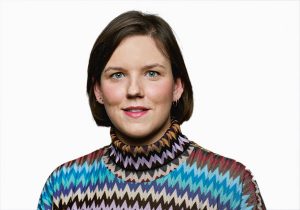 Nikoline is part of the Research Analytics Office at DTU working within different areas and aspects of research performance and assessment. She is a librarian by heart and education and has for the past five years been working in the intersection between data analysis and human interaction in various research and governmental institutions. Nikoline’s work package lead of OPERA’s WP on network analysis and visualization, reflects an interest in discussing and exploring how tools and concepts, within the field of research analytics, can be evolved and innovated in the context of the Open Science agenda.
Nikoline is part of the Research Analytics Office at DTU working within different areas and aspects of research performance and assessment. She is a librarian by heart and education and has for the past five years been working in the intersection between data analysis and human interaction in various research and governmental institutions. Nikoline’s work package lead of OPERA’s WP on network analysis and visualization, reflects an interest in discussing and exploring how tools and concepts, within the field of research analytics, can be evolved and innovated in the context of the Open Science agenda.
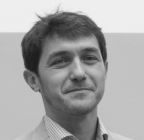 Ivo holds a PhD in Marine Science, currently responsible for fundraising at the National Institute of Aquatic Resources (DTU-Aqua). Ivo provides support across the research grants lifecycle, from proposal formulation, impact & dissemination to final delivery and financial audit. Personal interests focus on optimising strategies for societal impact of research projects.
Ivo holds a PhD in Marine Science, currently responsible for fundraising at the National Institute of Aquatic Resources (DTU-Aqua). Ivo provides support across the research grants lifecycle, from proposal formulation, impact & dissemination to final delivery and financial audit. Personal interests focus on optimising strategies for societal impact of research projects.
Specific focus in on using Open Science as an accelerator for knowledge transfer along the lab-2-market spectrum, and supporting Open Innovation, public engagement in the research process, and transdisciplinary re-use of research output. As part of FOSTER and FOSTER+, Ivo runs the Open Science CLINIQUE for H2020 applicants and National Contact Points (NCPs).
Ivo is External Expert for the development of EC’s Open Science Monitor and runs “Open Science CLINIQUE” for applicants and National Contact Points (NCP) at key Horizon 2020 deadlines throughout the year.
Wrap Up
Karen Sofie Hytteballe Ibanez
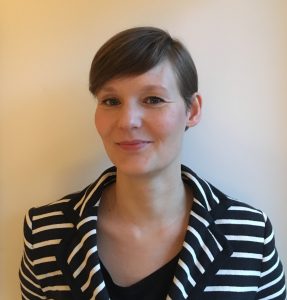
Karen is the Project Manager of the OPERA project and Senior Officer at DTU. Karen has been part of a number of successful projects and she has extensive knowledge of and experience with research analytics, data analyses, visualization and various aspects of the Open Science agenda. In previous positions, Karen has been deeply committed to disseminating knowledge about Open Access, chaired the Danish Open Access Network and negotiated e-content licenses at the national consortium DEFF.
Poul Melchiorsen
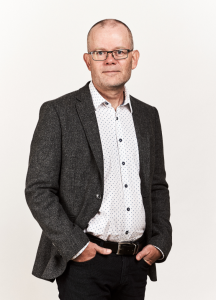 Poul joined Aalborg University Library in 2011 to work in the Pure administration team. The team covers registration, dissemination and analysis of research output. Poul specializes in research intelligence and management information at all levels. Focus for Poul is how to create research intelligence at a full-fledged university with research in most areas ranging from STEM over Health Sciences to SSH.
Poul joined Aalborg University Library in 2011 to work in the Pure administration team. The team covers registration, dissemination and analysis of research output. Poul specializes in research intelligence and management information at all levels. Focus for Poul is how to create research intelligence at a full-fledged university with research in most areas ranging from STEM over Health Sciences to SSH.
Poul holds a MA in Philosophy and Physics from University of Southern Denmark and a Master in IT from Aalborg University. Prior to the work at Aalborg University Poul worked in different software companies as teacher, front-end developer, consultant, database administrator, project coordinator and more.
Hands on with the Dimensions API: An introduction to Data Science
Simon Porter: Director Innovation, Digital Science
Michele Pasin, Senior Data Scientist
Wednesday 27 March 2019 from 13:00 – 17:00 (with breaks)
Technical University of Denmark, Kemitorvet, Bygning 202, Meeting room R8003, 2800 Kongens Lyngby.
This workshop will offer a hands on opportunity to work with the newly released Dimensions API, and in the process gain a beginners insight into some of the tools data scientists use on a daily basis.
Dimensions is a unique linked research knowledge system linking and standardizing publications, clinical trials, patents, and funded grants awards metadata across hundreds of data sources globally.
Using Dimensions data, and working with Jupyter notebooks, participants will be given the opportunity to work through a number of use cases including:
- Using the Dimensions API to explore the research landscape
- How to create collaboration diagrams based on Dimensions API searches
- Approaches to creating your own metrics with multiple research sources
- How to produce VIVO rdf from the Dimensions API
- Joining wikidata and the Dimensions API together via GRID ids
- An approach to demographic analysis
- Using tools like Gigantum to manage your python projects
- Building dashboards with dash
This workshop is intended for
- Research analysts, and at institutions using or considering a Dimensions subscription, either as a central analysis tool, or a data science teaching resource.
- Researchers considering using the Dimensions API as part of their Research into the science of science.
About Dimensions and the API
Dimensions is a unique linked research knowledge system linking and standardizing publications, clinical trials, patents, and funded grants awards metadata across hundreds of data sources globally. Using AI, natural language processing and machine learning, this system contextualizes the relationships among different research objects to generate a more comprehensive view of the lifecycle of an idea.
Research administrators, librarians, faculty, and communications teams can all use Dimensions for a variety of use cases from finding citations to publications to doing benchmarking analysis of research impact and reach across a number of institutions.
The Dimensions API can recreate every page/view/search done in the Dimensions platform (see the free version at app.dimensions.ai) as well as answer more complex questions via the unique Dimensions Search Language.

